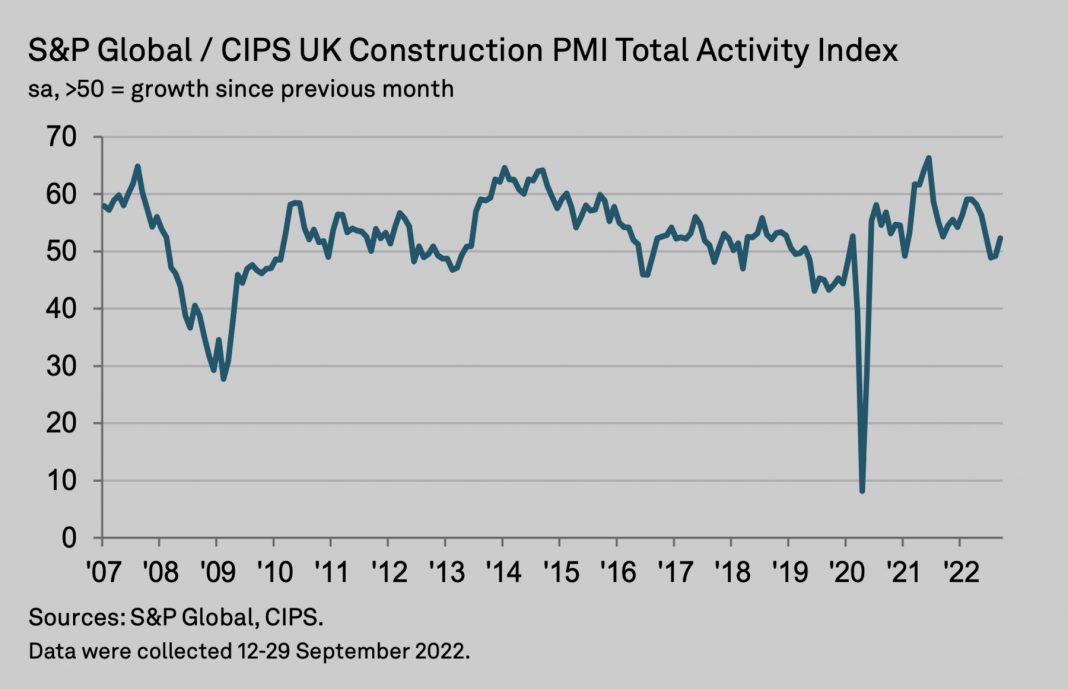UK construction companies reported a modest increase in business activity last month, but subdued demand was signalled by the weakest trend for new orders since the recovery began in June 2020, according to the latest CIPS UK Construction PMI report.
Tim Moore, Economics Director at S&P Global Market Intelligence, which compiles the survey said: “UK construction companies experienced a modest increase in business activity during September, but the return to growth was fuelled by delayed projects and easing supply shortages rather than a flurry of new orders. Reports of delivery delays for construction products and materials were the least widespread since the pandemic began as greater business capacity and improved transport availability helped to ease pressure on supply chains.
“However, forward-looking survey indicators took another turn for the worse in September, with new business volumes stalling and output growth expectations for the year ahead now the lowest since July 2020. This reflected deepening concerns across the construction sector that rising interest rates, the energy crisis and UK recession risks are all set to dampen client demand in the coming months.”
Dr John Glen, Chief Economist at the Chartered Institute of Procurement & Supply, said: “Developments in the UK economy have given the sector food for thought as supply chain managers reported softer levels of buying last month and the new orders index slipped to its lowest since May 2020. Though the headline index showed growth after two months in contraction, the devil lies in the detail pointing to lower customer confidence, a challenging UK economy and recession on the doorstep.
“Firstly, the rise in output has no sign of sustainable growth behind it as without new pipelines of work any gains will soon leak away. This was not lost on builders themselves who reported the lowest level of optimism since July 2020 about business opportunities in the next year.
“Secondly, the costs of doing business and the cost of living are still high and rising. More expensive energy and salary pressures to secure skilled staff have contributed to additional inflation, though 21% of building companies in the sector were still hiring to maintain capacity for current projects. “The housing sector remained the strongest performer in September although with interest rates rising and mortgage costs affecting affordability rates especially for first-time buyers, this will be an obstacle for house building to keep up the momentum as we approach 2023.”












